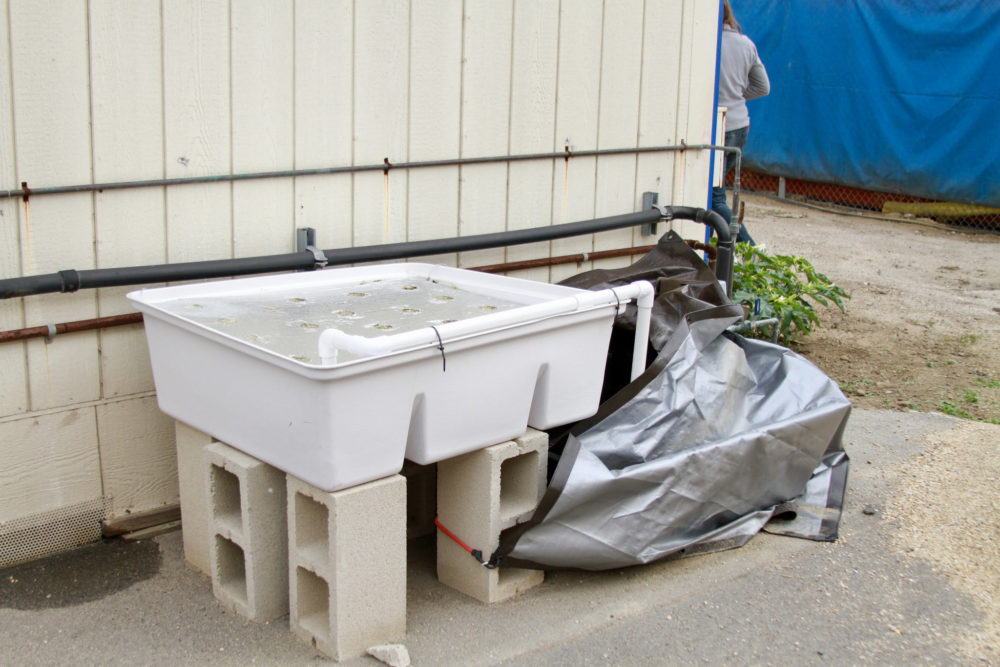
By Suzane Jlelati, Staff Writer
Chemistry and Advanced Placement Environmental Science teacher Lisa Battig has brought up the idea of aquaponics, or fish farms, for a while now, and it is finally being made on campus.
Aquaponics are a topic that commonly come up in science classrooms, so the idea of building one isn’t foreign, which Edison High School (EHS) did about three years ago.
“You’re balancing all of your nutrient needs through the growth of plants and the growth of fish,” said Battig. “The fish waste essentially feeds the plant life, so the plants don’t have to be fertilized. You don’t have to add any other additives; they are not pulling anything out from the soil-they’re not even in soil, their roots are in water.”
Doing aqua cultural or fish farming in the ocean is very detrimental to ocean systems, so pulling this onto land brings fewer ecological problems.
“In the first year, [the fish] are going to go to our maintenance staff and we’ll be thanking them as they’ve been doing an awful lot to support us, just on their own time,” said Battig.
The constructing started before Winter Break to watch the bacteria grow, and the first system is almost done. However, it is lacking proper airlines, the right temperature and pump efficiency. Once everything is setup, then the plants and tilapia fish will go in, with about 140 gallons of water in between.
“The first one is a prototype, but once we figure out the prototype, because there will be failures, then we will expand,” said biology teacher Emily Barro.
With hopes of the fish tank supporting two growing beds, a second fish tank will eventually be put in place to create two systems. EHS has had their electricity shut down in the past, which caused all their fish to die, one of the issues these teachers want to avoid.
“It’s real. You hear buzz words like sustainability and growing population and what kind of future we are going to have. We might have aqua cultures in our backyard in 50 years…who knows,” said Barro.





